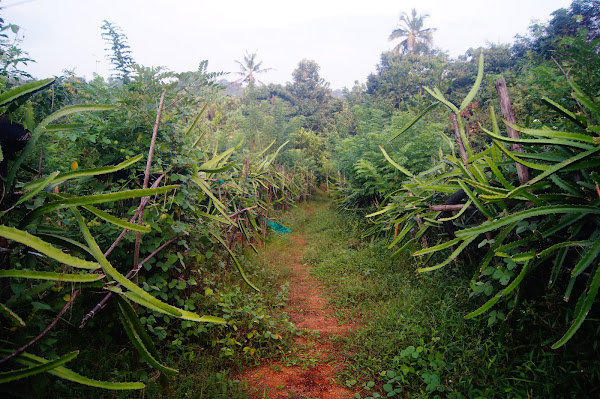Lemon tree; progress so far at our forest-farm
The Flourishing Journey of Lemon Trees at Liz Pepper Gardens Forest Farm
The lemon trees have been thriving at Liz Pepper Gardens . In this blog post, we discuss the remarkable progress of lemon tree growth, exploring their uses, benefits, and the significance they hold in the agricultural landscape.
The Growth Journey:
Lemon trees (Citrus limon) at Liz Pepper Gardens Forest Farm have undergone an impressive growth journey. Planted in nutrient-rich soil and carefully tended to, these trees have flourished under constant care. The farm's commitment to sustainable and organic farming practices has contributed significantly to the robust health of the lemon trees.
From tender saplings to mature trees laden with bright, citrusy fruits, the lemon trees have thrived in the farm's conducive environment. Regular pruning, proper irrigation, and organic fertilization have played pivotal roles in shaping the health and productivity of these lemon trees.
Uses of Lemon Trees:
1. Culinary Delights
Lemons are a versatile ingredient in the culinary world. From enhancing the flavors of dishes to being a key component in refreshing beverages, the fruit adds a zesty and tangy twist to various recipes.
2. Health and Wellness
The health benefits of lemons are well-documented. Rich in vitamin C and antioxidants, lemons support the immune system, aid digestion, and contribute to overall well-being. The farm's commitment to organic farming ensures that the lemons harvested are free from harmful pesticides and chemicals.
3. Natural Cleaning Agent:**
The natural acidity of lemons makes them an excellent eco-friendly cleaning agent. Lemon juice can be used to clean surfaces, remove stains, and even act as a natural air freshener, promoting a chemical-free living environment.
Benefits of Lemon Trees:
1. Environmental Benefits
Lemon trees, like all citrus trees, contribute to the environment by absorbing carbon dioxide and releasing oxygen during photosynthesis. This not only helps combat climate change but also improves air quality.
2. Economic Sustainability
Lemon cultivation provides economic sustainability to local communities. Liz Pepper Gardens Forest Farm has not only created a green haven but also generated employment opportunities and stimulated the local economy through the cultivation and sale of lemons and related products.
3. Biodiversity Enhancement
Lemon trees attract pollinators such as bees and butterflies, contributing to the overall biodiversity of the farm. This holistic approach to agriculture emphasizes the importance of a balanced ecosystem for sustainable farming practices.
Why Lemon Trees are Important:
1. Food Security
Lemon trees, being a valuable source of nutrition, contribute to food security. Their year-round availability ensures a consistent supply of this essential citrus fruit, aiding in maintaining a diverse and nutrient-rich diet.
2. Cultural Significance
Lemons hold cultural significance in various cuisines around the world. The fruit's inclusion in traditional dishes and its role in cultural practices highlight its importance beyond its nutritional value.
3. Sustainable Agriculture
Lemon trees exemplify the potential for sustainable agriculture. Liz Pepper Gardens Forest Farm's dedication to organic practices and environmental stewardship showcases how lemon cultivation can be part of a regenerative and sustainable farming model.
The progress of lemon tree growth at Liz Pepper Gardens Forest Farm is also about the success of careful cultivation and an inspiring example of how sustainable practices can be integrated into agriculture. From culinary delights to environmental benefits, lemon trees play a crucial role in enhancing both the farm's ecosystem and the well-being of those who enjoy their fruits. As we witness the flourishing lemon groves, it becomes evident that the journey of these trees extends beyond the orchards, touching upon broader themes of sustainability, community, and the profound interconnectedness of nature and agriculture.



Comments
Post a Comment